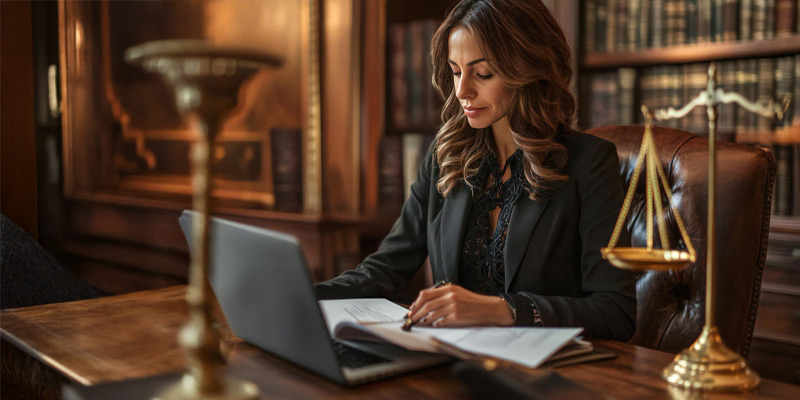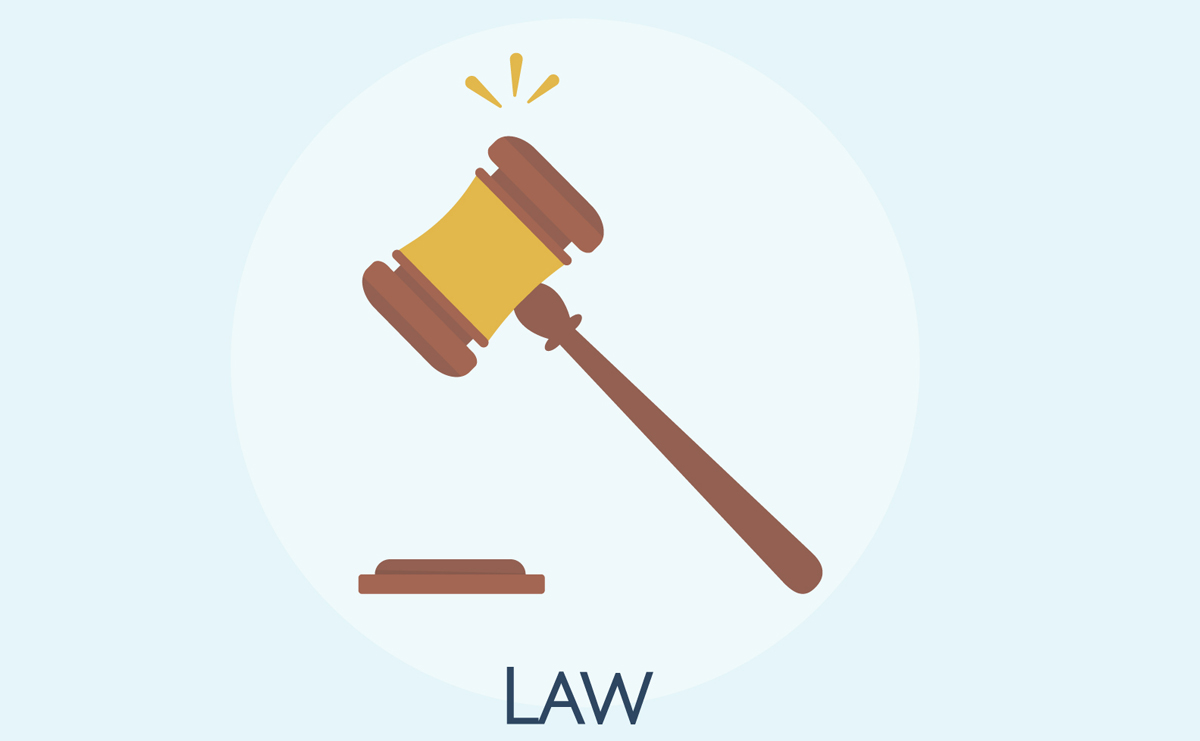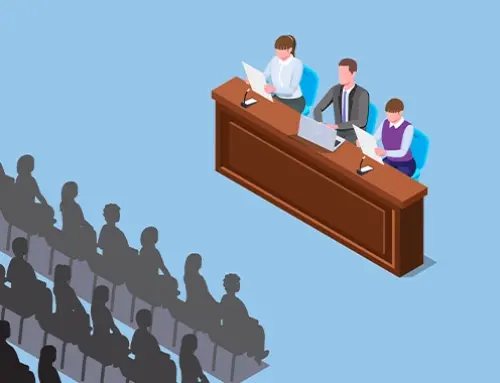Contents
Paralegals Practice Law Essentials: How to Stay Within Legal Boundaries
Paralegals play a vital role in the legal field by performing substantive legal work to support attorneys. However, current and aspiring paralegals must understand the legal boundaries of their role within paralegals practice law. Stepping over those boundaries into tasks reserved for licensed lawyers can lead to the unauthorized practice of law (UPL) – a serious ethical and legal violation. This article explains what constitutes UPL, clarifies what paralegals are permitted to do under attorney supervision, answers the common question “Can a paralegal give legal advice?”, and provides practical tips to avoid crossing the line. The goal is to help paralegals provide valuable assistance without accidentally providing legal advice themselves.
Understanding the Unauthorized Paralegals Practice Law
Unauthorized paralegals practice law refers to a non-lawyer performing tasks that are legally defined as practicing law. In the United States, only a licensed attorney may practice law, and doing so without a license isn’t just unethical – it’s illegal. Paralegals are explicitly prohibited from engaging in the unauthorized practice of law (UPL), and violating this prohibition can result in serious penalties, such as fines or even imprisonment. These rules exist to protect the public; only those with the requisite education, skills, and licensing (attorneys) are authorized to give professional legal advice to clients. In short, if a task requires the legal knowledge and judgment of an attorney, a paralegal should not perform it independently.
While definitions vary by state, there is broad agreement on the core activities that constitute the unauthorized practice of law (UPL) for paralegals. Below are key examples of what paralegals cannot do on their own, as those actions are considered practicing law without a license:
- Accepting or rejecting legal cases (establishing attorney-client relationships): The attorney’s role is to decide whether to take on a client or provide an engagement agreement. A paralegal cannot independently form or decline a client relationship for the firm. This includes signing engagement letters or other contracts on behalf of the lawyer.
- Setting legal fees: Only attorneys may set or negotiate the fees charged to a client. Paralegals should never quote a client a legal fee or make billing decisions – doing so would overstep their role.
- Providing legal advice or opinions: The most important boundary is that paralegals may not give legal advice. This means a paralegal cannot interpret how the law applies to a client’s situation, recommend what actions the client should take, evaluate the likely outcome of a case, or formulate a legal strategy for a client. All of those are examples of legal judgment calls that only an attorney can make. (In other words, paralegals should never tell a client what they should do in a legal matter – that would be legal advice.)
- Representing clients in court or formal proceedings: Only licensed attorneys (or individuals specifically allowed by law in certain administrative hearings) can represent a client before a court or tribunal. A paralegal must not appear on behalf of a client in court, take depositions, or sign pleadings or other filings for a client. Submitting documents to a court with your signature or advocacy would be considered UPL in every state.
- Preparing legal documents without attorney review: Paralegals often draft legal documents (contracts, pleadings, forms, letters, etc.), but these drafts must be reviewed and approved by an attorney before being finalized or shared outside the firms. If a paralegal were to prepare and distribute legal documents to a client or court without a lawyer’s supervision or sign-off, that would cross into unauthorized practice.
- Making ultimate legal decisions or ending representation: Decisions such as concluding or terminating the attorney-client relationship (for example, deciding when a case is closed or whether the firm will withdraw) must be made by the attorney, not the paralegal. Similarly, any other task that requires independent legal judgment or creates obligations on behalf of the client (such as signing a settlement on the client’s behalf) is off-limits.
These restrictions can be summed up: If it requires a law license, a paralegal cannot do it. Paralegals receive education and training in law to assist attorneys, but they are not licensed to practice law themselves. The attorney’s extensive legal training is geared towards exercising legal judgment for clients, whereas a paralegal’s role is to support that judgment under supervision.

What Paralegals Can Do Under Supervision
The good news is that paralegals can handle a lot of important legal work, as long as it’s assigned and supervised by a licensed attorney. Paralegals practice law by helping attorneys expand their capacity—essentially giving lawyers extra support to get more done. Almost any task a lawyer can perform can be delegated to a paralegal, provided an attorney oversees it and the law allows for delegation. Ultimately, the attorney remains responsible for the work and the client’s representation, but a skilled paralegal can take on much of the preparation and organizational tasks. This setup is both ethical and efficient, enabling law firms to offer better client service at a lower cost, allowing attorneys to concentrate on activities that specifically require their legal expertise.
Common tasks paralegals perform (under attorney supervision) are as follows:
|
Research and Fact-Finding |
Paralegals frequently conduct legal research (finding statutes, cases, regulations) and investigate facts of a case. They may also gather documents or information from clients and third parties. All research findings are ultimately reviewed by the attorney, but paralegals typically handle the detailed groundwork. |
|
Document Preparation |
Drafting documents is a core paralegal skill. Paralegals draft pleadings (complaints, motions, discovery requests), contracts, wills, corporate filings, correspondence, and more. All drafts must be reviewed and approved by the supervising attorney before finalization. |
|
Organizing and Managing Case Files |
Paralegals organize client files and evidence, maintain document management systems, and summarize depositions or discovery documents to highlight key points. They also track important deadlines and court dates for attorneys. |
|
Client Communication (within limits) |
Paralegals often serve as the point of contact for clients. They schedule appointments, provide factual updates on case statuses, and collect necessary documents or information. However, they must avoid giving legal opinions or guarantees. |
|
Assisting at Hearings or Trials |
Paralegals assist attorneys during hearings or trials by managing exhibits, taking notes, tracking testimony, and coordinating witnesses. They cannot address the court directly or represent clients. |
|
Administrative Tasks Related to Legal Matters |
Paralegals assist in administrative functions such as preparing billing statements, drafting fee agreements, handling court filings (under attorney authorization), drafting cover letters, and coordinating service of process. These tasks must not involve independent legal decision-making. |
Can a Paralegal Give Legal Advice?
No – a paralegal cannot give legal advice. This is one of the fundamental bright lines in legal ethics. “Legal advice” means applying legal knowledge and judgment to a specific client’s situation – essentially, telling someone what they should do about a legal matter. Because giving legal advice is the practice of law, it is reserved exclusively for licensed attorneys. If a paralegal (who is not a licensed attorney) were to give legal advice, they would be engaging in the unauthorized practice of law.
It’s worth emphasizing that this rule applies regardless of the paralegal’s level of experience or knowledge. Even if you’ve worked in a legal area for many years and know exactly what you would advise a client to do, you still cannot directly give that advice because you are not the attorney of record. Under no circumstances should paralegals offer their own legal opinions or assurances to a client. This is true even if the client pressures you for an answer or the question seems simple – providing the answer is the attorney’s responsibility, not the paralegal’s.
What’s the Difference Between Legal Advice and Legal Information?
A paralegal can relay factual information or status updates to a client but must refrain from interpreting that information or advising on it. For example, you may tell a client: “Your court hearing is scheduled for October 15th, and the next step is for the parties to exchange documents.” That’s legal information – it’s factual and procedural. But you should not add, “I think you have a strong case, and you should refuse to settle,” or “This contract language means you don’t have to pay those fees.” Those statements would cross the line into legal advice because they involve personal interpretation of the law and recommendations for action. As one legal expert puts it, paralegals may share facts but cannot give an opinion on a client’s legal chances or strategy. Only attorneys are authorized to provide educated legal opinions or strategic advice to clients.
Sometimes, the line between information and advice can be subtle. If a client asks a point-blank legal question – e.g., “What does this clause mean for me?” or “Should I accept this settlement?” – a paralegal must not answer on their own. The appropriate response is to defer to the attorney. You might say, “I’m not an attorney, so I can’t give legal advice. Let me note your question so Attorney Smith can address it.” This not only keeps you within ethical bounds, but it also ensures the client receives an answer from the person legally qualified to provide it. Paralegals are encouraged to relay the client’s questions to the lawyer and then convey the lawyer’s advice or instructions back to the client, acting as a communication bridge but not the decision-maker. For instance, you might follow up with the client later: “I discussed your question with Attorney Smith, and her advice is that you should proceed with option X.” In this way, the client’s needs are met without the paralegal personally assuming the attorney’s role.
To avoid confusion, many law firms instruct paralegals to include a disclaimer when corresponding with clients, such as stating in emails that you are a paralegal and cannot give legal advice. This reinforces the boundary. Clients sometimes may not understand the limits of a paralegal’s role and might ask, “What do you think I should do?” It can be flattering that they trust you, but always remember your answer must be, “You’ll need to speak with the attorney about that – I’ll make sure they address it.” This protects both you and the client. As the ABA Model Guidelines and professional ethics codes emphasize, paralegals must refrain from providing legal advice or taking any action that would constitute the unauthorized practice of law (UPL). No matter how much a client presses, maintaining this boundary is crucial.
Tips to Avoid Crossing Legal Boundaries
Staying within legal boundaries isn’t always automatic – it requires vigilance and good habits. Here are some practical tips for paralegals (and those supervising them) to ensure you don’t inadvertently cross the line into unauthorized practice of law:
- Know Your Limits (and Stick to Them): Always be clear on which tasks are off-limits for you as a paralegal. Remind yourself that you cannot establish client relationships, set legal fees, give legal advice, or represent clients in proceedings. When a situation arises involving one of those tasks, that’s your cue to involve the attorney. By internalizing these limits, you’ll be less likely to overstep accidentally.
- Always Work Under Attorney Supervision: Make sure a licensed attorney is overseeing your work at all times. In practice, this means you take direction from an attorney and keep them informed of all substantive actions. Never act as a “lone ranger.” For example, if you draft a legal document, ensure that the attorney reviews and approves it before it is sent out. If you’re communicating with a client, the attorney should be aware of it and guide the messaging if it touches on legal matters. Remember that your lawyer is responsible for all your work, so they must have the opportunity to supervise and correct it. Don’t view supervision as micromanagement; it’s a safety net that protects you, the client, and the firm.
- Never Give Legal Advice or Opinions: This bears repeating because it’s so important. If a client, friend, or anyone asks you for legal advice in your capacity as a paralegal, politely decline and refer them to an attorney. You might say something like, “I’m sorry, I’m not authorized to give legal advice, but I’ll be happy to have the attorney discuss this with you.” It can be tempting to answer questions when you know the likely answer but don’t. Even experienced paralegals must not provide legal advice, as it is not within a paralegal’s scope of practice. Keep your communications to gathering facts or conveying the attorney’s words. If you catch yourself starting to phrase an opinion (“I think you should…”), that’s a red flag – stop and re-route the discussion to the attorney.
- Identify Yourself as a Paralegal in All Communications: One simple but effective safeguard is to consistently let others know that you are a paralegal, not a lawyer. This can be done by including your title in your email signature, letters, business cards, and even when you introduce yourself on phone calls. For example, sign emails as “Jane Smith, Paralegal to John Doe, Esq.” and start phone calls with, “Hello, this is Jane Smith, I’m a paralegal calling from XYZ Law Firm.” By explicitly stating your role, you reduce the chances of a client or opposing party assuming you have authority you don’t. It also sets the expectation that specific questions will be forwarded to the attorney. Many ethical guidelines (e.g., ABA, NALA) stress that paralegals should disclose their non-lawyer status to avoid any potential misconceptions. Make this a habit every time.
- Provide Legal Information, Not Advice: There is a fine line between explaining and advising. As a tip, try to stick to objective facts and procedural steps when talking with clients or third parties. For instance, it’s fine to say, “The court approved the schedule so that discovery will happen over the next 30 days,” or “I will gather these documents for your case.” These are statements of information or promises of action, not judgment calls. However, avoid speculative or interpretive comments like, “The judge will probably rule in our favour” or “This clause means you’re off the hook.” When in doubt, ask yourself: Am I telling the person what they should do, or am I predicting a legal outcome? If yes, that veers into advice – don’t go there. Stick to reporting the status, next steps, or the attorney’s instructions. By channeling communications this way, you remain helpful but safe. (When clients seek more than information, follow up with the attorney.)
- Don’t Sign or File Documents as if You Were the Attorney: Always have filings, pleadings, and correspondence that contain legal arguments or conclusions signed by the attorney (or sent under the attorney’s name). Paralegals should not sign pleadings or settlement agreements on behalf of clients or lawyers. If you prepare a draft, the attorney should finalize and sign it. There are limited ministerial exceptions (e.g., you might sign a transmittal letter in your own name if it’s purely administrative). Still, as a rule, anything substantive must carry the attorney’s signature. Also, never present yourself in writing or orally in a way that could be misinterpreted as you being the attorney. For example, avoid using phrases like “my client” when speaking – it’s the attorney’s client; you are talking on their behalf. Use “our client” or the client’s name only in appropriate contexts.
- Consult the Rules, and When in Doubt, Ask: If you ever feel unsure whether a task might cross ethical lines, stop and seek guidance. Consult your state’s rules or guidelines on paralegal conduct, review the ABA or NALA ethical canons, or ask a supervising attorney for clarification. It’s far better to take a pause and get confirmation than to assume wrongly and violate a rule. Ethical dilemmas can arise in new situations (especially with technology and new law practice models), so a cautious approach is wise. Many paralegals use a “gut check” – if something feels like it might be the practice of law, it probably is. Double-check before proceeding. Additionally, engaging in continuing education or ethics training can keep you up-to-date on the boundaries of your role. By staying informed, you’ll have confidence about what you can and cannot do.
- Uphold Confidentiality and Professionalism: While not directly related to UPL, maintaining client confidence and fulfilling other ethical duties indirectly helps you stay within your lane. For example, if a client casually asks for advice in a social context, your commitment to professionalism will remind you to decline. Keeping a strictly professional tone and role with clients can discourage them from pushing you into giving unauthorized advice. Moreover, closely following all ethical rules (such as confidentiality and conflict of interest) puts you in the mindset of working with the attorney as a team rather than acting independently. A paralegal who is diligent about all ethical rules is unlikely to break the most significant one: unauthorized practice. And remember, violations can have severe consequences – including job loss, legal sanctions, or even personal liability. It’s simply not worth the risk.
Final Thoughts
Paralegals are indispensable to the legal profession, but their role is clearly defined and well-defined boundaries. By understanding the essentials of how paralegals practice law under supervision, you can navigate your duties confidently without venturing into forbidden territory. Always remember that while you handle many essential tasks in a legal matter, you do so as support to a licensed attorney, not as the attorney.
One common question is, “can a paralegal give legal advice?” The answer is straightforward: No, paralegals must never give legal advice. When it comes to making strategic legal decisions or representing clients, those responsibilities are exclusively for attorneys. A savvy paralegal focuses on executing the tasks they can do—researching, drafting, organizing, and communicating—all with the oversight of counsel. By following the guidelines above and staying mindful of your professional limits, you will avoid the unauthorized practice of law and excel in your role. This protects you and your firm from legal trouble, and it ensures that clients receive advice and representation only from those who are duly authorized.
Staying within legal boundaries isn’t just about avoiding penalties; it’s also about maintaining the integrity of the legal process and the value of your profession. Paralegals who respect these boundaries earn trust and respect from attorneys, clients, and regulators alike. With a clear understanding of what you can do and what you must not do, you’ll continue to be a vital, ethical, and practical part of the legal team—keeping your work on the right side of the law.
Equip Your Paralegal Career with RunSensible
Managing a successful legal career requires more than just knowing how to become a paralegal—it takes the right tools to stay organized and efficient. RunSensible offers an all-in-one legal practice management solution designed to support every aspect of your workflow, from client intake and scheduling to secure file sharing and document automation.
Whether you’re just starting or already meeting paralegal certification requirements, RunSensible helps streamline communication, manage cases, and stay on top of tasks with ease. With cloud-based access, smart calendars, and built-in CRM features, you can focus more on legal support and less on manual administration. Start using RunSensible today and take control of your legal operations.
FAQs
-
How can paralegals avoid accidentally practicing law?
To avoid crossing legal boundaries, paralegals should clearly communicate their role, refrain from providing legal opinions or advice, ensure that an attorney reviews and approves all substantive work, and regularly consult with supervising attorneys when uncertain.
-
What should a paralegal do if asked a legal question by a client?
Paralegals should explain they cannot give legal advice and promptly refer the client’s questions to the supervising attorney for appropriate handling.
-
Is drafting legal documents considered an unauthorized practice of law?
Paralegals can draft documents, but they must not independently finalize or send them out without review and approval by a supervising attorney.
-
What happens if a paralegal engages in the unauthorized practice of law?
Consequences include disciplinary action, potential job loss, fines, or even criminal charges. Supervising attorneys may also face professional discipline for allowing it.
References
- https://biz.libretexts.org/Courses/Northeast_Wisconsin_Technical_College/Introduction_to_Legal_Studies_and_Legal_Ethics/02%3A_Legal_Ethics/2.06%3A_Unauthorized_Practice_of_Law
- https://www.zinzowlaw.com/ethical-dilemmas-faced-by-paralegals/
- https://www.americanbar.org/groups/paralegals/profession-information/information_for_lawyers_how_paralegals_can_improve_your_practice/
- https://nala.org/certification/certification_old/nala-code-ethics-and-professional-responsibility/
Disclaimer: The content provided on this blog is for informational purposes only and does not constitute legal, financial, or professional advice.







